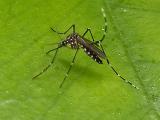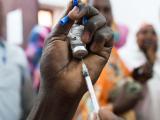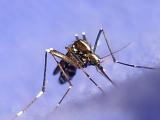The Brazilian Ministry of Health is reporting a spike of confirmed yellow fever cases and deaths 1 week after the Pan American Health Organization (PAHO) released updated epidemiologic information that showed a significant slowdown of yellow fever transmission in the latter half of 2017.
In 1 week, the number of recorded deaths from yellow fever rose from 20 to 53, reported cases rose from 470 to 601, while confirmed cases jumped from 35 to 130, O Globo reported yesterday. All deaths have occurred in Minas Gerais, Sao Paulo, and Rio de Janeiro states.
Ministry of Health data lag behind data from state officials, Brazilian media reported. The state health data for Minas Gerais notes 24 deaths (1 more than the federal government count), and Rio de Janeiro recorded 8 deaths (also 1 more than the federal total for that state.) All reports indicate that Sao Paulo has 21 deaths.
Parks, zoos closed
The Associated Press (AP) reports that Sao Paulo has decided to close its zoos and parks temporarily to discourage possible transmission between monkeys and human visitors. The World Health Organization (WHO) said Monday that increasing epizootic cases are a cause for concern throughout Brazil.
"All confirmed cases are likely to have acquired their infections in geographic locations where there are documented epizootics in non-human primates," the WHO said. "The high number of epizootics and animals concerned indicates a high level of circulation of the virus in ecosystems favorable for transmission."
The WHO described a planned yellow fever vaccine in Sao Paulo, Rio de Janeiro, and Bahia states from Jan 25 through Mar 3. The aim is to vaccinate 21.8 million people (16.5 million with the fractional dose and 5.3 million with the standard dose) who live in these states.
Both doses offer 99% immunity against the virus within 30 days of immunization, and around 80% immunity after 10 days. A full dose of yellow fever vaccine offers lifelong immunity, while the fractional doses will require future boosters.
The WHO also warned travelers who may flock to Brazil during next month's Carnival season to get their yellow fever vaccine.
PAHO said since 2016 officials have reported 777 confirmed cases and 261 deaths, by far the most number of cases experienced by any South American country in recent years. Those numbers are expected to rise given the new reports and the encroaching rainy season.
See also:
Jan 23 O Globo story
Jan 23 AP story
Jan 22 WHO statement




















